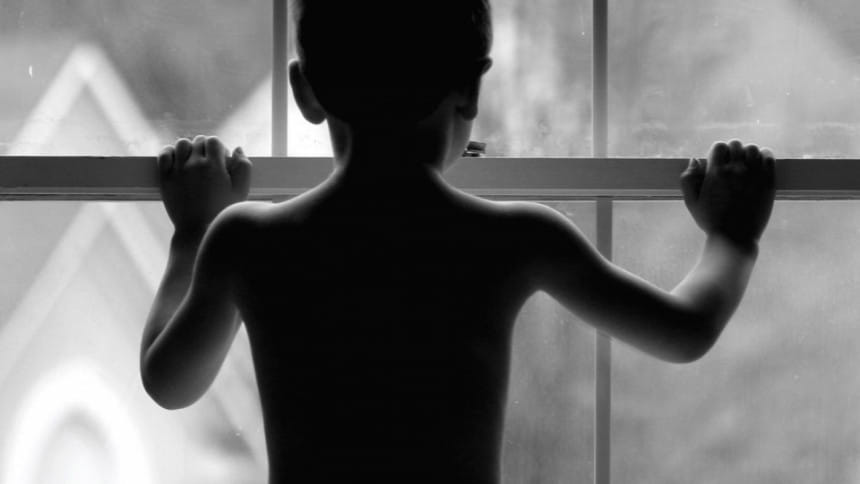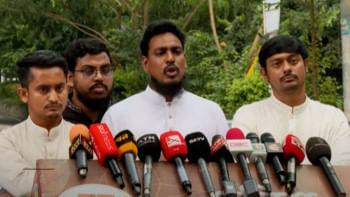Dissolution of separate children's tribunals is a severe blow for children's rights

Last week a certain develop-ment seemed to have gone largely unnoticed amongst the flurry of news about political rallies, the drama unfolding on the world stage over the killing of Jamal Khashoggi, and Bangladesh-Zimbabwe ODI cricket. The Children (Amendment) Act, 2018 was passed in Parliament on October 22 provoking barely any response from the media. Amongst the slew of new bills passed recently, the Children (Amendment) Act may almost seem innocuous in comparison—but some observers believe there is a good reason to be worried.
One of the objectives of the amendment of the Children Act 2013 was to widen the scope of the law so that the trial process would not be delayed. The new Act has provisions to set up one or more children tribunals in each district. But here is where experts have raised alarm bells: under the amended Act, Women and Children Repression Prevention tribunals will now act as Children Tribunals, which means children will be tried for their offences in the same court as adults charged with crimes against women and children.
The new law—which was perhaps more well-intentioned than well-thought-out—could have repercussions on many fronts. The crux of the problem is the merging of the two types of tribunals. By thrusting children's tribunals into existing Women and Children Repression Prevention tribunals, the law reflects a poor understanding of the distinct purpose and functions of the two courts.
There is a reason why trials under the Children Act 2013—the principal Act in the country's juvenile justice system—were to be conducted in children's tribunals. The law is such that it is child-centred and restorative in nature, i.e. "a system of criminal justice which focuses on the rehabilitation of offenders through reconciliation with victims and the community at large." This means that the child offender is given an opportunity to understand the consequences of his actions and redeem himself before being mainstreamed into society. Almost like being granted a second chance. The Women and Children Repression Prevention Act, on the other hand, is offence-centred and punitive in nature. The offenders, if found guilty, are given harsh punishments. The emphasis is on society rather than on the individual. Preventing crimes against women and children—rather than rehabilitation of the offender—is the ultimate goal.
The courtroom matters too. The settings in which children are to be tried are markedly different from those in a traditional courtroom. The latter with its witness stand, podium and overall authoritarian ambience is replaced with an ordinary room for a warmer child-friendly environment. The core reason being protection of the child from further criminalisation.
The amended Act, unfortunately, seems to have ignored all these nuanced differences by lumping together children's tribunals with those under the Women and Children Repression Prevention Act. Not only does it defy common logic—that a child accused of committing an offence mustn't be treated the same way as an adult—it also runs contrary to established international standards. Empowering the Women and Children Repression Prevention tribunals to take on the role of children's tribunals also does not align with Article 28(4) of the Constitution which states: "Nothing in this article shall prevent the State from making special provision in favour of women or children or for the advancement of any backward section of citizens." The constitution makes it clear, in no ambiguous terms, that nothing can keep the state from making special provisions for the welfare of children. By dissolving the once-separate tribunals for children, we seem to have done the opposite.
This also goes against a landmark High Court judgement on the role of the juvenile court in children-related cases. In the case of State vs Md Roushan Mondal Alias Hashem, the High Court Division held: "Juveniles charged with offences falling under special law will have to be dealt with by the juvenile court in accordance with provisions of the Children Act, which, in our view, is of universal application and approach, irrespective of the offence alleged."
The incongruities do not end there. The Act was amended reportedly with the aim to speed up the trial process. But this logic barely holds any water. As of February 2018, the number of cases which were under trial in the Children's Court throughout the country was 17,992. Whereas at the end of last year, the total number of cases which were still under trial in the Women and Children Repression Prevention Tribunals was 1,65,550—almost nine times the number of cases pending under the Children's Court. The Women and Children Repression Prevention Tribunals clearly have more cases than they can handle. So how exactly would burdening the already over-burdened tribunals speed up the trial process? And aren't we well aware of the snail's pace at which the legal system in the country works?
The dissolution of separate children's courts is a severe blow for children's rights in the country. We seem to have forgotten that it is largely children from marginalised groups who have to wage legal battles and deal with innumerable hurdles along the way such as exorbitant legal costs, discrimination, harassment, etc. Whereas countries around the world are doing everything they can to strengthen the juvenile justice system and setting their sight on resolving issues of lack of manpower and infrastructure to speed up trials, we seem to have opted for an absurd remedy altogether. A big regressive step.
Nahela Nowshin is a member of the editorial team at The Daily Star.





Comments